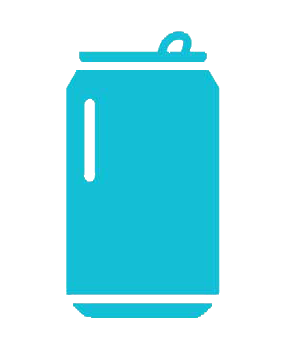Resistance from corrosion, fire, and heat are some advantages stainless steel manufacturers can boost with this material. It’s also weldable, formable, machinable, has high tensile strength, and is overall aesthetically pleasing.
The initial cost of custom stainless steel fabrication can be a bit steep, however, its long lifespan still makes it an economical choice in the long run.
(+) Highest tensile/yield strength
(+) Very Ductile, comparable to copper
(+/-) Mid-range weldability
(+/-) Very machinable, equally comparable to other materials
(-) Least cost-effective
Energy services, and chemical processing lead the industries responsible for the use of stainless steel. For the industries where day in and day out extreme elements wear on exposed pipelines, chemical transportation, and equipment, the level of corrosion resistance and heat resistance of stainless steel is unmatched by other materials.
Stainless steel sheet metal has also been growing in popularity for lighting solutions and makes up the bulk of the components for canning solutions.

Reject Can Trays
Dispenser Components
KickPlate Components
.png?width=272&height=360&name=Commercial-and-Industrial-Lighting-(1).png)
Fan Shroud Brackets
Mounting Plates
Evaporator Case Components
Rail Adapters
Field Ring Gauges
Anti-Rotation Brackets
304 Stainless Steel (also known as A2 Stainless steel) is the most commonly used grade of stainless steel. This grade of stainless has 18% chromium, 10% and 8-10% nickel, which has coined the nickname 18/8 and 18/10. Thanks to the nickel and chromium in this grade it has a higher level of corrosion resistance, which has made it widely popular for use in many applications.
316 Stainless Steel (also known as A4 stainless steel) is ideal for extreme applications and is why it's often called marine grade. The 2% molybdenum in its composition provides a highly sought-after resistance to corrosion, especially against localized corrosion (“pitting”) known to happen in marine environments from the high chloride content in oceans, as well as corrosion resistance from acids and other harsh chemicals.